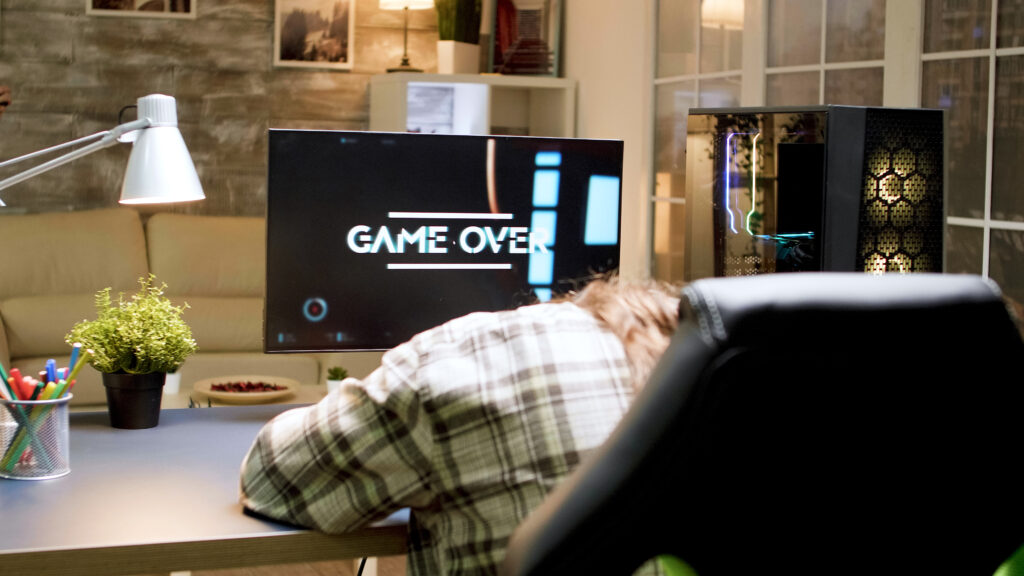In today’s world, gaming has evolved from being just a hobby into a full-fledged passion, career path, and even a way to connect with friends globally. However, with the rise of immersive games and long gaming sessions, it’s easy to lose track of time and neglect real-life responsibilities. Balancing real life and virtual life requires careful planning and disciplined time management to maintain a healthy lifestyle.
In this article, we’ll explore practical time management tips that can help gamers enjoy their favorite hobby while staying on top of real-life obligations.
1. Understand Your Priorities
Before diving into a game, reflect on your priorities. Real-life commitments like work, school, family, and health should always come first. Assess what tasks need to be accomplished daily or weekly and plan your gaming sessions around these responsibilities.
Tips to Identify Priorities:
- Create a list of daily tasks and rank them in order of importance.
- Use tools like Google Calendar or a planner to schedule time blocks for important activities.
- Set non-negotiable times for work, study, and family to ensure these areas are not neglected.
For example, if you have work from 9 AM to 5 PM, designate evenings for gaming only after finishing essential chores or personal errands.
2. Set a Fixed Gaming Schedule
Gaming without a schedule often leads to extended sessions, which can disrupt your daily routine. By setting a fixed time for gaming, you can enjoy your favorite titles guilt-free.
How to Build a Gaming Schedule:
- Allocate specific hours for gaming, such as 7 PM to 9 PM.
- Use alarms or timers to remind you when to stop.
- Reserve weekends for longer gaming sessions to avoid cutting into weekday responsibilities.
This simple approach ensures you remain consistent with real-life tasks while still enjoying virtual adventures.
3. Limit Overlapping Commitments
One common struggle for gamers is juggling multiple responsibilities while trying to enjoy their favorite games. Avoid multitasking during gaming sessions, as this can reduce productivity and detract from the gaming experience.
Tips to Reduce Overlap:
- Dedicate specific times for gaming and avoid scheduling work or study during these periods.
- Let friends and family know your gaming hours to minimize interruptions.
- Keep a clear boundary between workstations and gaming setups to maintain focus.
4. Incorporate Breaks in Long Gaming Sessions
Sitting for hours without breaks can lead to physical fatigue, eye strain, and decreased focus. Whether you’re exploring new quests in an RPG or competing in an intense multiplayer match, ensure you take regular breaks.
Healthy Break Ideas for Gamers:
- Follow the 20-20-20 rule: Every 20 minutes, look at something 20 feet away for 20 seconds.
- Stand up and stretch for five minutes every hour.
- Stay hydrated and grab healthy snacks instead of sugary drinks or junk food.
These breaks will not only improve your physical health but also enhance your performance during gameplay.
5. Balance Social Life with Gaming
Gaming is a great way to connect with friends online, but it’s equally important to maintain face-to-face interactions with your loved ones. Striking this balance can help prevent feelings of isolation.
How to Maintain Social Connections:
- Schedule offline hangouts with friends or family regularly.
- Invite your non-gaming friends to join casual gaming sessions.
- Use in-game chat as an additional tool for bonding but avoid making it your sole method of communication.
For more insights into maintaining relationships, check out our article on “Fostering Healthy Relationships Through Gaming.”
6. Set Clear Goals for Gaming
Much like in real life, setting goals in your gaming routine can prevent wasted hours. Whether it’s reaching a specific level, unlocking achievements, or improving skills, having clear objectives keeps your sessions purposeful.
Ways to Set Gaming Goals:
- Write down daily or weekly gaming goals.
- Use in-game trackers or progress bars to monitor achievements.
- Celebrate small milestones to stay motivated.
When gaming aligns with your overall time management strategy, you’ll find more enjoyment and satisfaction.
7. Avoid Procrastination
Procrastination is a common pitfall for gamers, as “just one more level” often turns into hours of lost time. Overcoming procrastination involves discipline and awareness.
Tips to Stay Focused:
- Complete real-life tasks before starting any gaming session.
- Use gaming as a reward for finishing important duties.
- Break larger responsibilities into smaller, manageable tasks to avoid feeling overwhelmed.
8. Minimize Distractions
Gaming often comes with a host of distractions, from social media to background noise. Minimizing these distractions allows you to focus better on both gaming and real-life tasks.
How to Stay Focused:
- Mute unnecessary notifications on your phone or computer.
- Invest in noise-canceling headphones to eliminate background noise.
- Use apps like Focus Booster to manage your time effectively.
9. Learn to Say No
Friends inviting you for a late-night raid or competitive match can be tempting, but learning to say no when necessary is crucial. Prioritize your health and commitments over optional gaming sessions.
When to Say No:
- If you have an early morning commitment the next day.
- When gaming begins to interfere with your physical or mental well-being.
- If it conflicts with important responsibilities like work or school deadlines.
10. Incorporate Physical Activity into Your Routine
Long gaming sessions can lead to a sedentary lifestyle, which may cause health problems in the long run. Incorporating physical activity into your daily routine balances out the time spent gaming.
Quick Exercises for Gamers:
- Stretch your arms, back, and neck before and after gaming sessions.
- Include 30 minutes of cardio or strength training daily.
- Consider standing desks or gaming setups to stay active.
11. Track Your Time
Keeping track of how much time you spend gaming versus real-life activities can provide valuable insights into your habits.
Best Tools for Time Tracking:
- RescueTime: Tracks time spent on games and apps.
- Toggl: Helps manage and categorize tasks.
- Gaming consoles often have built-in timers to monitor playtime.
These tools help identify areas where you might need to cut back or adjust your schedule.
12. Join Gaming Communities That Promote Balance
Many online gaming communities focus on promoting a balanced lifestyle. Joining such groups can provide support, tips, and motivation to maintain a healthy balance.
Examples of Supportive Communities:
- Subreddits like r/StopGaming for setting limits.
- Discord servers dedicated to mindful gaming habits.
- Forums discussing balancing gaming with life commitments.
13. Focus on Quality Over Quantity
Spending 2-3 hours fully immersed in a game is often more rewarding than binge-gaming for 10 hours straight. Focusing on quality gaming experiences allows you to enjoy the best of both worlds.
14. Reflect and Adjust Regularly
Balancing life and gaming is a continuous process. Periodically reflect on your habits and make adjustments as needed.
15. Seek Help When Needed
If gaming starts to interfere with your life significantly, don’t hesitate to seek help. Whether it’s from a friend, family member, or professional counselor, addressing the issue early can prevent long-term problems.



